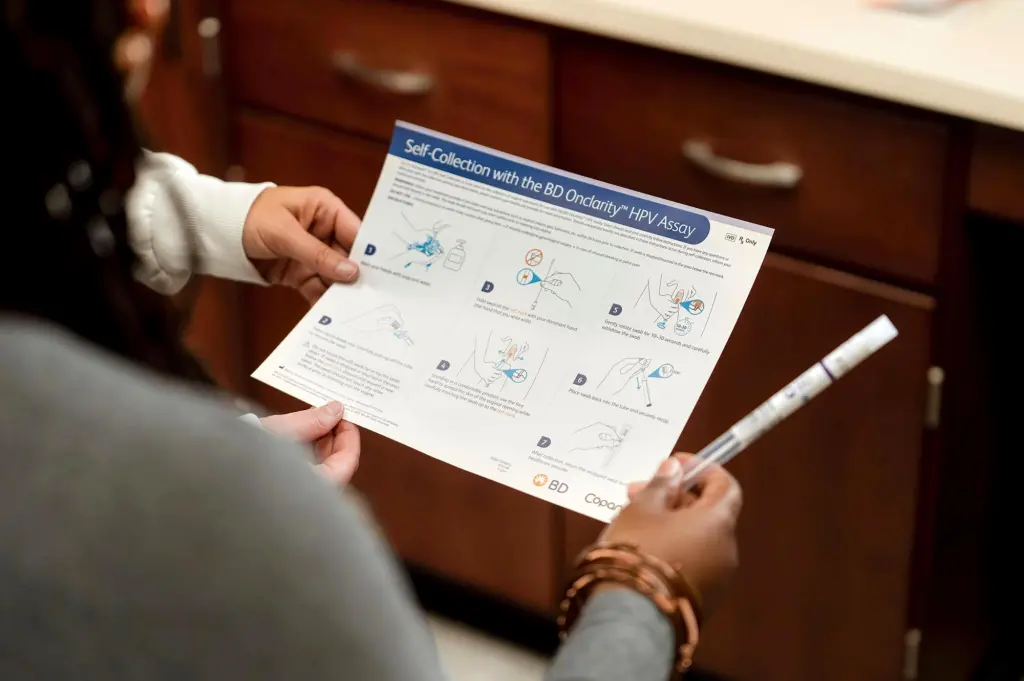
Every October, we recognize Breast Cancer Awareness month, a time to honor survivors, support those in treatment and recommit ourselves to the fight against a disease that touches countless lives. At the same time, we mark National Health Literacy Month, which reminds us of the power of knowledge and understanding in shaping our health outcomes.
Cancer affects every corner of communities across the nation and takes the lives of thousands of Americans annually. In Maryland alone, more than 33,000 residents are diagnosed with cancer each year, and more than 10,000 Marylanders die from the disease.
While promising progress is being made in the search for a cure, early detection remains our most effective tool in the fight against cancer. When cancer is found early, treatment is more likely to succeed, and survival rates are dramatically higher. Unfortunately, far too many people are still missing out on lifesaving screenings, often due to a lack of information, barriers to access or misconceptions.
Health literacy, the ability to find, understand and use health information, plays a critical role in closing these gaps. When patients know why, when and how to get screened for cancers like breast, colon or lung cancer, they are empowered to take charge of their health. As a physician, I have seen firsthand how conversations about screening lead to early detection and, ultimately, to lives saved.
But unfortunately, most Americans are not up to date on their recommended cancer screenings. A recent MedStar Health survey revealed that 60% of women aged 40 and over are not following the recommendation from the American College of Radiology to have a yearly mammogram if they’re at average risk, the most cited reason being that they’ve always had normal mammograms in the past. And more than 50 million people — one out of three eligible Americans — are not up to date on their colorectal cancer screenings due to the perceived discomfort of traditional screening methods.
Why aren’t more people getting screened? The answer is often perceived discomfort and stigma around traditional screening options, but also logistics. Many of the screening methods, while effective, present hurdles. The special preparation required for colonoscopies, the discomfort of mammograms, taking time off work, dietary changes or transportation challenges. These barriers may seem minor, but for many patients, they are enough to delay or skip screening altogether.
Thankfully, new innovations in cancer screening are making it easier than ever to catch cancer early and save lives. Advances such as 3D mammography, low-dose CT scans for lung cancer and multi-cancer early detection blood tests are expanding our ability to spot cancer in its earliest, most treatable stages.
Recently, the FDA approved the Shield test, the first blood test approved for primary colorectal cancer screening. This new tool, currently covered for recipients of Medicare and the U.S. Department of Veterans Affairs’ Community Care network, offers patients a more accessible, less invasive way to screen for colorectal cancer. By reaching potentially millions who might otherwise go unscreened, it represents a major medical breakthrough in the fight against the nation’s second deadliest cancer, a disease with a 91% survival rate when detected early.
The increase of available testing options is important as we work to address screening gaps and educate on the importance of routine screening, especially at a time when cancer is increasingly being diagnosed earlier in life. This underscores the urgency of shifting the conversation about screening beyond older adults and starting those discussions sooner than in the past.
As physicians, our role is not only to provide the most advanced tools but also to meet patients where they are. Increased screening options offer another way to do that, and to do so in a manner that easily fits into their lives.
We are at a turning point in cancer prevention. We must use every tool at our disposal to catch more cancers early, save more lives and give every patient the best possible chance at a healthier future. I encourage patients to speak with their physicians about their cancer risk, what the best screening options for them are and develop a plan for testing today.
Dr. Eric Wargotz, a physician and educator, is a clinical professor emeritus of pathology at the George Washington University School of Medicine and Health Sciences. He is president-elect of MedChi — the Maryland State Medical Society. The views expressed in this piece are his own and do not represent those of his professional affiliations.